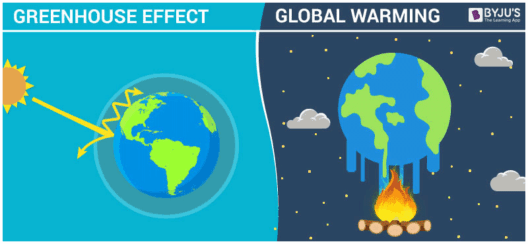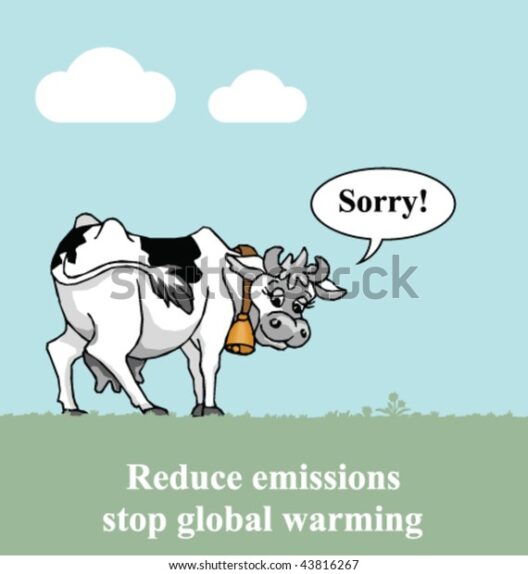In an increasingly warming world, the nexus between dietary choices and climate change is becoming an undeniable reality. The phrase “Less Meat, Less Heat” succinctly encapsulates a transformative approach to mitigating global warming through altered eating habits. This mantra not only reflects a conscientious lifestyle choice but also points to the considerable impact meat production has on our planet’s ecological balance. As we delve deeper into this subject, it becomes evident that our culinary preferences carry profound implications for climate health.
To comprehend the significance of reduced meat consumption, one must first understand the environmental consequences of livestock farming. The sector is a principal contributor to greenhouse gas emissions, particularly methane, nitrous oxide, and carbon dioxide. Ruminant animals, such as cows and sheep, produce methane during digestion—an effluent more potent than carbon dioxide in its warming effects. The Food and Agriculture Organization (FAO) estimates that livestock accounts for approximately 14.5% of global greenhouse gas emissions. This statistic should be a clarion call for individuals and policymakers alike.
Moreover, meat production demands a significant amount of land, water, and energy, exacerbating other environmental concerns such as deforestation and freshwater depletion. Large swaths of the Amazon rainforest, often referred to as the planet’s lungs, have been sacrificed to create pasture land for cattle. This deforestation not only releases vast quantities of stored carbon dioxide but also diminishes biodiversity. The interconnectedness of these ecological issues illustrates why a shift towards plant-based diets is pivotal in combatting climate change.
In examining the motivations behind dietary shifts, it is crucial to recognize the deeply ingrained cultural preferences surrounding meat consumption. For millennia, various societies have celebrated the consumption of animal products as symbols of prosperity, strength, and tradition. The pervasive notion that meat is integral to a fulfilling diet can often overshadow the practical and ethical considerations associated with its consumption. Addressing this misconception is essential to engendering a broader acceptance of plant-based alternatives.
The economic rationale for adopting a diet lower in meat is also compelling. The costs associated with meat production are often hidden from consumers, obscuring the true price of this dietary choice. Beyond direct expenses, the ramifications of meat farming extend to healthcare costs related to climate-induced illnesses and environmental degradation. Investing in a diet that prioritizes vegetables, grains, and legumes not only aids personal health but also contributes to a resilient food system capable of withstanding climate-related disruptions.
Transitioning towards a less meat-centric diet can be a nuanced process. While some individuals may transition to vegetarian or vegan lifestyles, others may opt for a more moderate approach, such as adopting Meatless Mondays or reducing portion sizes. The beauty of this flexibility lies in its accessibility. The collective impact of millions choosing to ‘eat less meat’ can trigger substantial reductions in emissions and resource consumption, altering the trajectory of climate change.
The emergence of innovative plant-based products has further made the transition feasible for many. Today, the market is rife with alternatives that emulate the sensory experience of meat while providing a more sustainable option. From lentil-based burgers to soy-derived sausages, these culinary innovations not only cater to diverse palates but also underscore the potential for a future where environmental health and gastronomical pleasure are harmonious. Furthermore, the gastronomic landscape is evolving, with chefs and home cooks alike experimenting with flavors and textures that celebrate plant-based ingredients, thus enriching our culinary repertoire.
Consumer awareness and education play vital roles in fostering a cultural shift towards reduced meat consumption. Social media platforms have amplified the voice of environmentalists and influencers advocating for sustainable eating habits, creating a community of like-minded individuals who endeavor to inspire change. Documentaries, informative blogs, and cookbooks aimed at promoting plant-based diets have flooded the market, enriching the public discourse surrounding food choices and their implications for the planet.
Governments and institutions also have an essential part to play in this transition. Policy measures that advocate for sustainable agriculture, provide incentives for plant-based food production, or impose taxes on high-emission meat products can facilitate a cultural shift towards plant-centric diets. By prioritizing sustainable food policies, authorities can support farmers in adopting environmentally friendly practices while simultaneously nudging consumers towards choices that align with a healthier planet.
As individuals integrate the concept of “Less Meat, Less Heat” into their lives, it is imperative to recognize the importance of community and collective action. Grassroots movements and local initiatives focused on sustainable agriculture, farmers’ markets, and community gardens can augment individual efforts and create a sense of shared purpose. These initiatives help cultivate a dialogue around food, reinforcing the notion that dietary choices are intimately tied to larger societal and environmental consequences.
In conclusion, embracing a diet with reduced meat consumption is not merely a personal choice; it is an imperative collective movement geared towards preserving the planet. By understanding the multifaceted relationship between dietary habits and climate change, individuals can take actionable steps to mitigate their environmental impact. “Less Meat, Less Heat” serves as a rallying cry for this essential transition, conveying the merits of sustainable eating practices and the profound effects they can have on global warming. The amalgamation of individual action, informed policies, and cultural shifts will pave the way for a more sustainable future, ultimately cooling our planet and nurturing the environment for generations to come.








